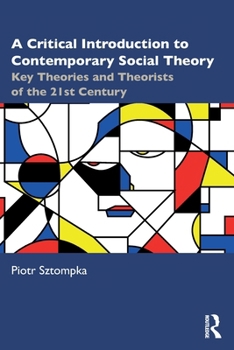A Critical Introduction to Contemporary Social Theory: Key Theories and Theorists of the 21st Century
Examining the core sociological theories that have emerged in the first two decades of the current century, A Critical Introduction to Contemporary Social Theory outlines their attempts to answer the most fundamental questions of the discipline, from the nature of social order to the mechanisms of social change.
Through a careful exploration of the history of modern social theory, Piotr Sztompka lays the critical groundwork for investigating the development of contemporary social theory from its founding fathers in the 19th century, through the rich contributions of the 20th century, known as "the golden age of theory," up to the most recent developments and illuminates how it is both anchored in and a critique of previous attempts to theorize foundational questions to social being and action. Contemporary theory, the book argues, is now moving toward analysis of action, interpersonal relations, social and epistemological realism, and multivalent mechanisms at the root of social phenomenon.
Major social theoretical thinkers like Anthony Giddens, Pierre Bourdieu, Jeffrey Alexander, Randall Collins, Jonathan Turner, Hans Joas, Ulrich Beck, Erving Goffman, and others are presented and evaluated as significant contributors to contemporary social theory, while pointing toward future possibilities for social theory in the current century. This will be a key resource for undergraduate and graduate students in sociology, social theory, and contemporary cultural studies.





